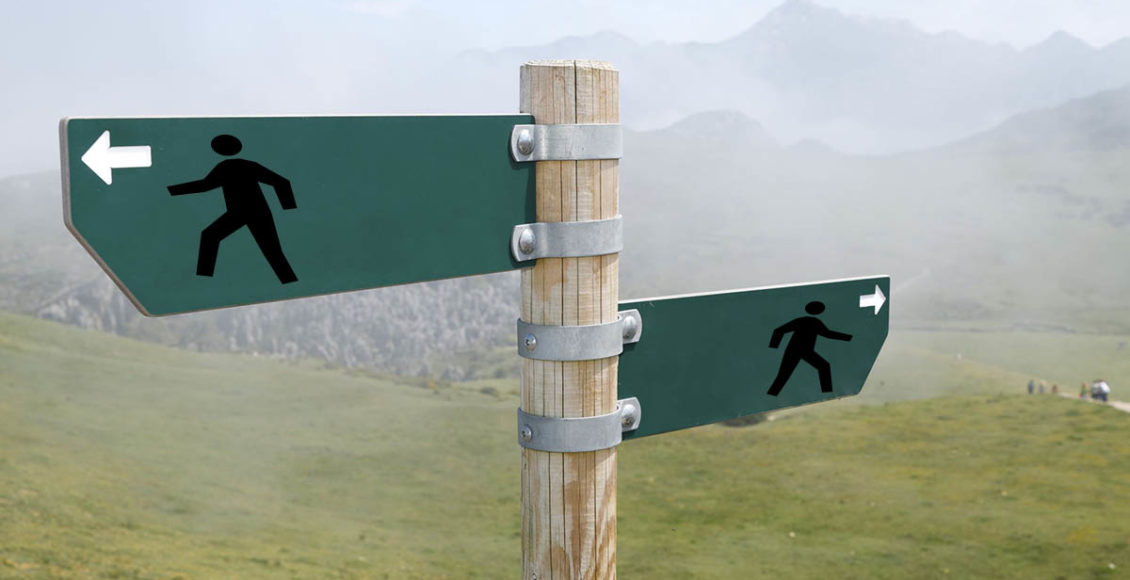Are you having a hard time making up your mind? Do you feel uncomfortable making decisions and ruling out options? Then you might be suffering from chronic indecisiveness.
What is chronic indecisiveness?
According to Psychology Today, chronic indecisiveness is the habit of avoiding a decision. For millions of people, making a clear decision feels suffocating, as it triggers severe anxiety-related emotions. You feel pressure to make a choice. You feel stressed out by the possible outcome of that choice. You feel trapped in your own mind.
Whether it’s simple everyday subjects like “What should I wear?” or existential questions like “Is he/she the one?” making decisions can be incredibly difficult. It is especially challenging for people with OCD, perfectionists, and those who tend to procrastinate.
Usually, individuals struggling with chronic indecisiveness focus on the negative side of things. They worry too much about the outcome of their decisions and create negative scenarios in the back of their heads. These scenarios, which may have nothing to do with reality, are sometimes so stressful, that they develop a fear of decision-making.
Are you suffering from ordinary indecision?
There is a good chance you are simply dealing with ordinary indecision. It is completely normal to have trouble making choices sometimes. In fact, getting stuck after burnout and not being able to make a decision is quite common and doesn’t necessarily lead to chronic indecisiveness.
What you need to know is that being chronically indecisive is not a personality trait but a behavioral issue. Therefore, you have the actual opportunity to change it, even though it is an enduring tendency.
While some people have a hard time making decisions in general, others have difficulty making choices in particular areas of their life. They become highly sensitive when they are urged to make a decision about a certain topic they feel uncomfortable or insecure about.
To deal with the pressure, those who struggle with decision-making usually procrastinate or avoid making a choice by consciously or unconsciously pretending there isn’t a choice to make in the first place. Yes, your consciousness can make you forget you ever had to make a decision as a coping mechanism helping you deal with the stress.
What are the underlying issues you could have with decision-making?
1. Avoiding potential risks.
Do you have an escape plan every time a friend asks you to hang out? Are you struggling with committing to doctor’s appointments? You might be chronically avoiding making a clear choice, fearing you might put yourself at risk. If you often answer with the words “We’ll see,” this should feel quite relatable.
2. Avoiding the wrong choice.
Your fear may also be related to making the wrong choice. You create a highly undesirable scenario in your mind, and you put yourself in a situation where you cannot find the escape button. However, you fail to acknowledge that it’s usually all in your head.
3. Making the best choice.
Do you often feel anxious when you have more than two options, and you can’t decide which would be the best one? Do you go back and forth evaluating all the pros and cons of every single alternative? If you do, then you might have a case of perfectionism.
4. Making the right choice.
On the other hand, you might have a clear idea of what you want and that you will know instantly when you see it. So you wait. And you wait. And you wait until you get that “Eureka!” feeling. But you never get it, do you? You might be dealing with OCD or ambivalence, which makes it extremely difficult for you to make a choice, as all the options appear equally attractive or unattractive.
5. Fear of missing out.
The so-called FOMO could affect your decision-making, as you may have the desire to look through all opportunities and keep your options open, so you don’t miss out on anything. You avoid making a choice because you don’t want to halt all your other possibilities. In other words, you want it all. But you forget that you cannot have everything you want.
6. “Justified” indecisiveness.
Some people may feel justified in their indecisiveness. They excuse their avoidance by conducting detailed research or simply being cautious. For them, it is much more valuable to make the right choice than to make a fast one, or at least that’s what they are telling themselves. No matter how long it takes for them to make a decision, they are willing to undergo the frustrations of others. This behavior is typical for people with OCPD (obsessive-compulsive personality disorder).
Why taking no action could be detrimental?
By avoiding making a decision for one reason or another, you eventually end up taking no action. As you fear the possible negative consequences of making the wrong choice, you forget about the outcome of doing nothing at all. Sometimes passivity can be more damaging than taking a step in the wrong direction. You might lose opportunities, get stuck at places you don’t want to be, or even let your loved ones down. It all unavoidably leads to terrible self-judgment.
It all comes down to choosing comfort instead of change. Doing nothing and staying where you are seems risk-free. Leaving a problem unresolved gives you the illusion that there isn’t a problem at all. However, by refusing to take action, you are only delaying the inevitable.
Furthermore, you should also consider how your indecisiveness affects the ones you care for. Your avoidance may be seen as selfishness, as you may ignore their needs only because you fear making a choice.
So, are you struggling with chronic indecisiveness? What helps you deal with it? Let us know in the comment section!


